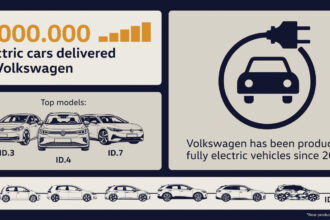The ongoing rail lockout in Canada is posing significant challenges for the North American automobile industry, with several experts describing the situation as “highly problematic.” This industrial action has disrupted the crucial supply chain for automotive parts and finished vehicles across the continent.
The lockout, involving major Canadian rail operators, has halted the transportation of essential components used in car manufacturing. This interruption comes at a critical time when the industry is already dealing with other supply chain issues such as semiconductor shortages and post-pandemic recovery challenges.
Automotive industry analysts warn that prolonged disruptions could lead to slowdowns in production lines, potential layoffs, and increased costs for manufacturers and consumers alike. The auto industry relies heavily on a just-in-time manufacturing process, meaning parts often arrive exactly when needed without significant warehousing. Rail is a key component of this logistics strategy, particularly in transporting bulk items over long distances.
The impact goes beyond the auto industry, affecting other sectors that depend on rail for the timely delivery of goods. However, the automobile sector, with its complex and intertwined supply chain across North America, feels the immediate brunt of these disruptions.
- Advertisement -
Negotiations between the rail companies and the unions are ongoing, but there seems to be no quick resolution in sight. Both sides are urged by industry stakeholders to swiftly find a resolution to mitigate further economic damage.
As this situation develops, it remains crucial for businesses across the automotive supply chain to explore alternative transportation methods and contingency plans to minimize disruptions and maintain operations.
This analysis highlights the critical role of rail logistics in North American manufacturing and the broader economic implications of such industrial actions. Stakeholders in the industry will be watching closely, hoping for a resolution that restores the essential rail services that keep their operations moving seamlessly.
Words by: Craig Clowes
Credits
news.google.com





